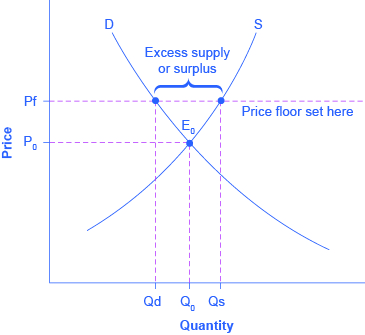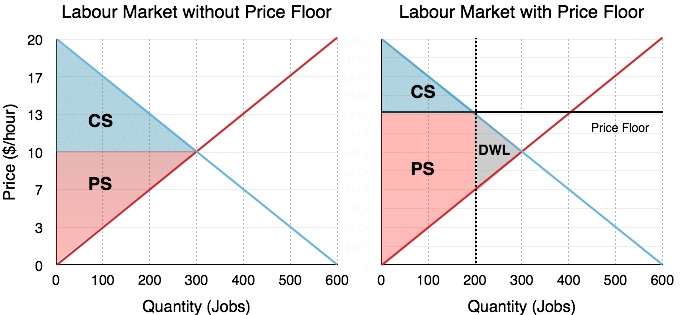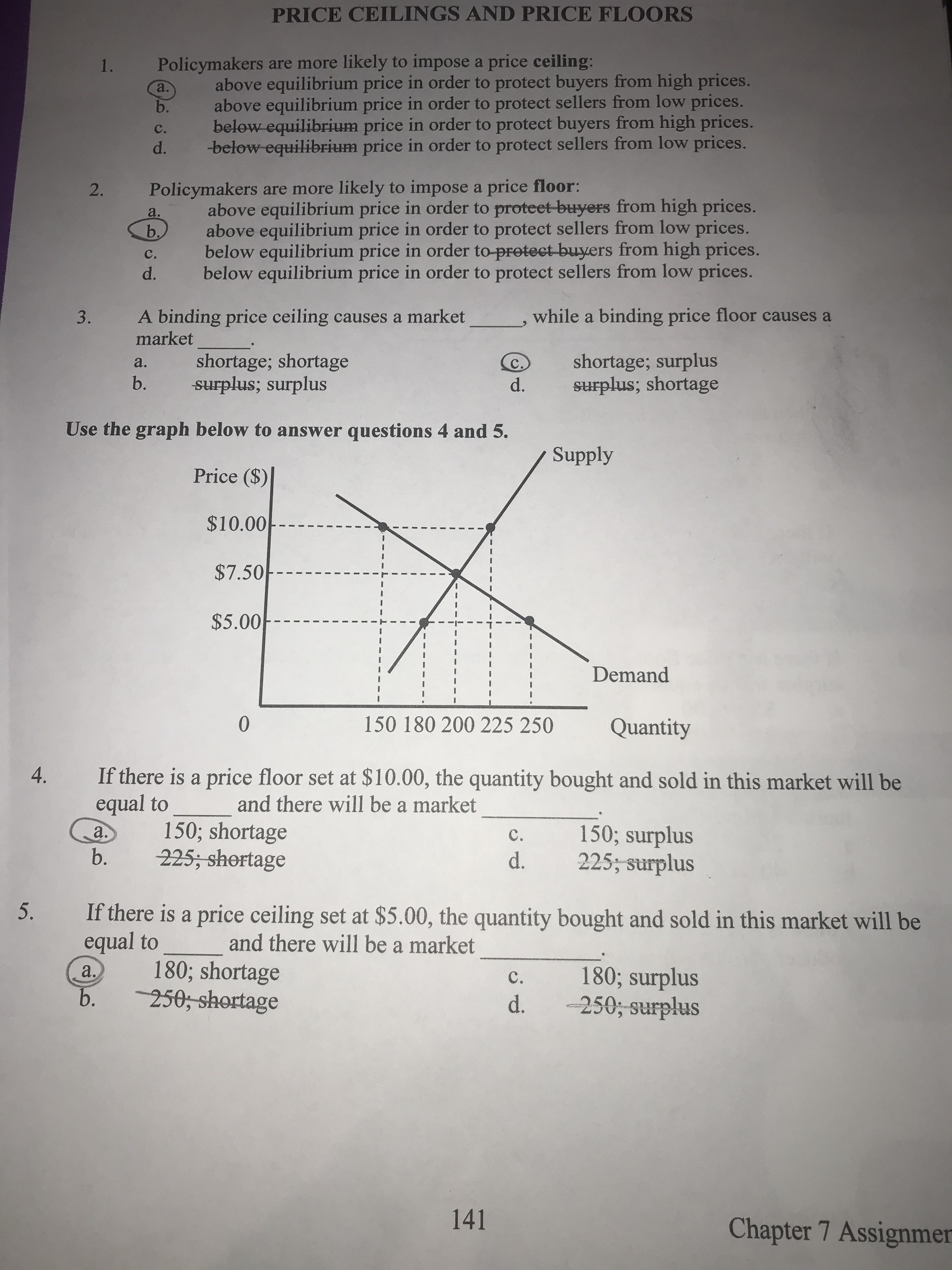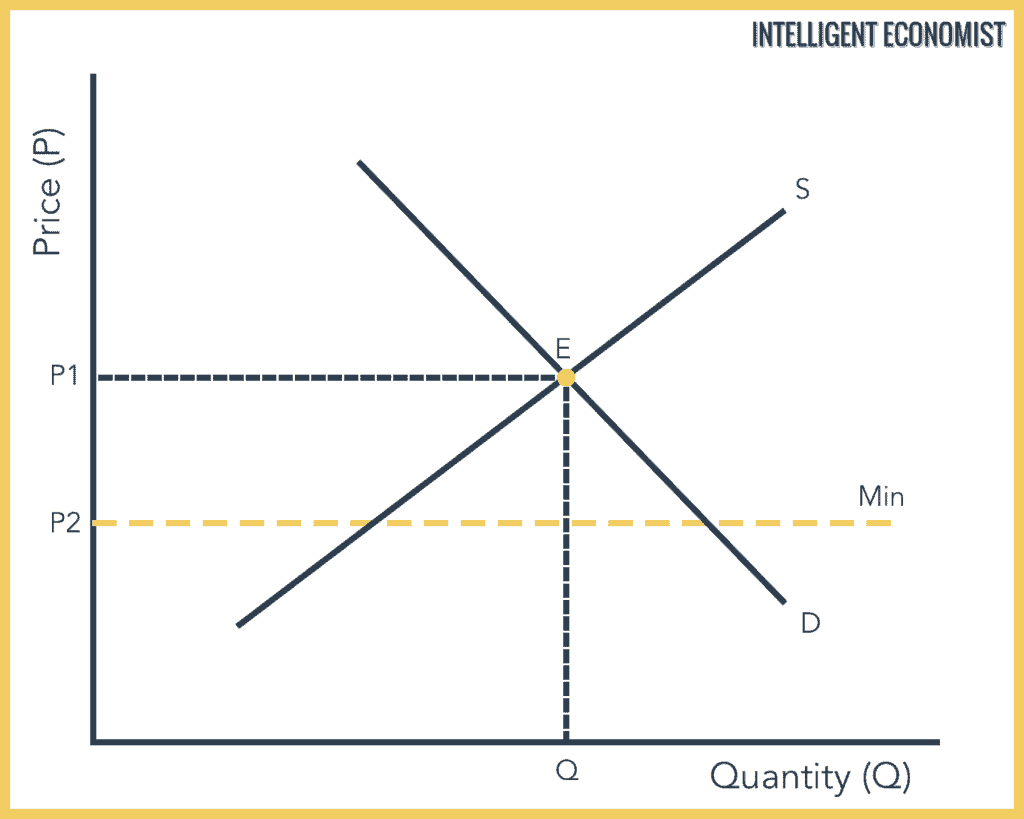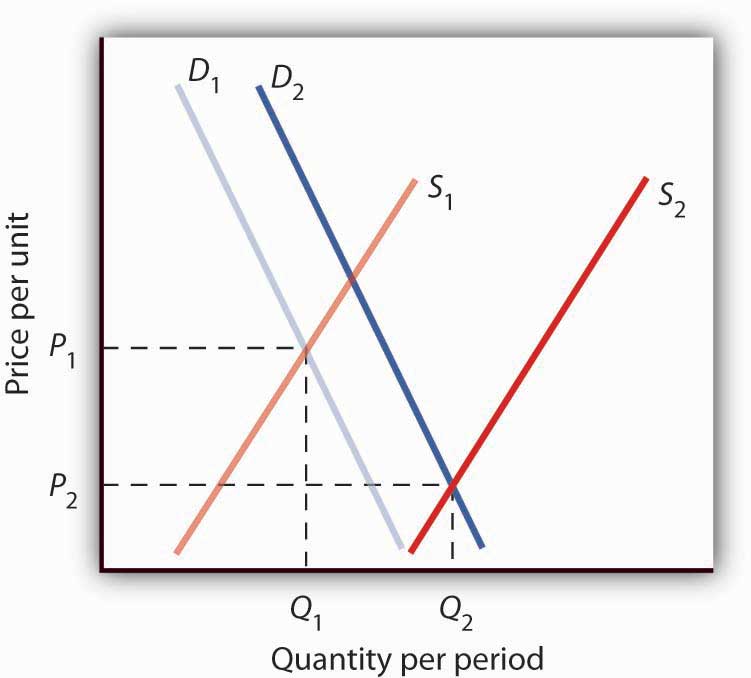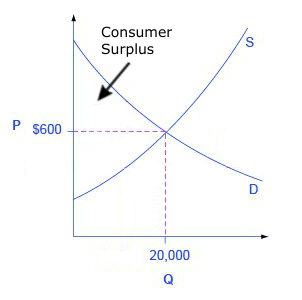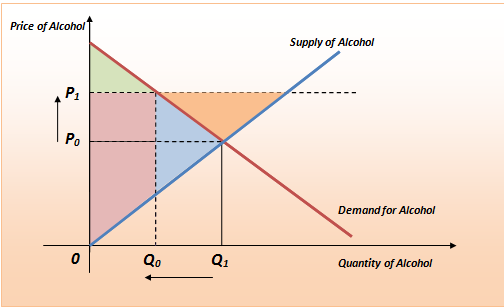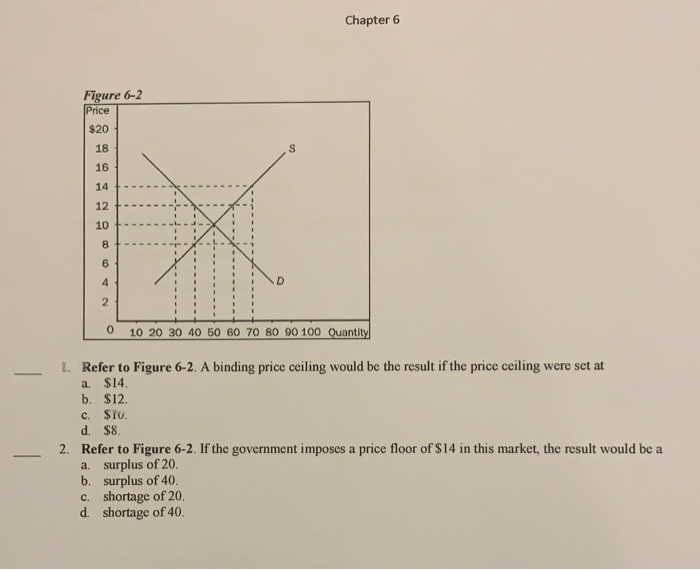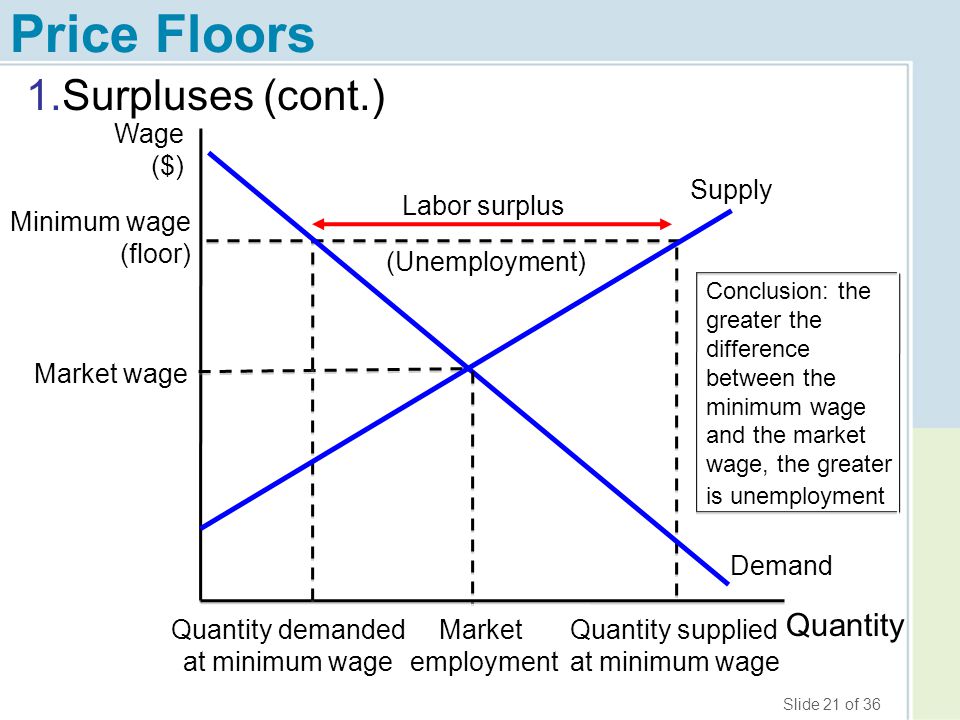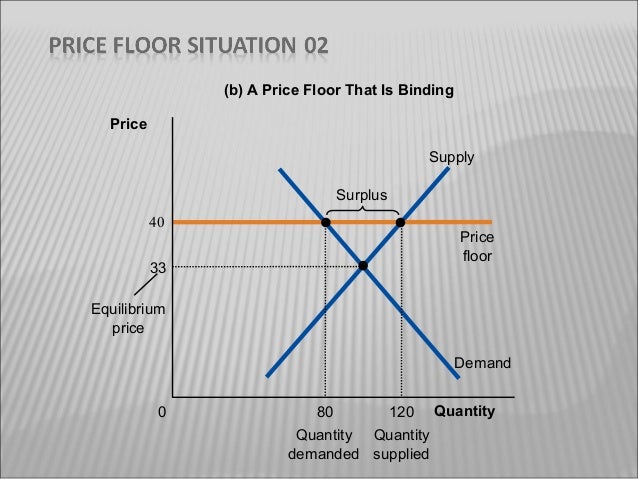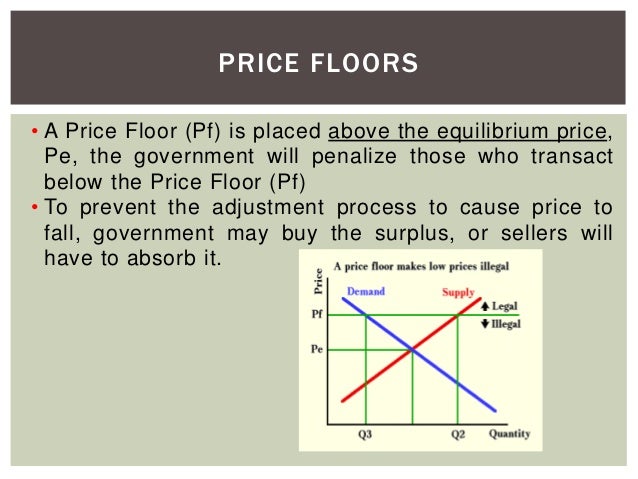An price floor will lead to a surplus because even though the firm would like to lower prices to match the equilibrium price it cannot do so legally.
Why do price floors cause surpluses.
Price floors are also used often in agriculture to try to protect farmers.
Price floors which prohibit prices below a certain minimum cause surpluses at least for a time.
The most common price floor is the minimum wage the minimum price that can be payed for labor.
It is legal minimum price set by the government on particular goods and services in order to prevent producers from being paid very less price.
The opposite is true of surpluses.
Minimum wage and price floors.
The price continues to rise until customer demand falls to meet the level of supply or until production increases to meet the present demand.
This is the currently selected item.
When a price floor is set above the equilibrium price quantity supplied will exceed quantity demanded and excess supply or surpluses will result.
Example of price floor and how it causes surpluses.
This analysis shows that a price ceiling like a law establishing rent controls will transfer some producer surplus to consumers which helps to explain why consumers often favor them.
Price floors surpluses and the minimum wage.
Example breaking down tax incidence.
A price floor is the lowest legal price a commodity can be sold at.
When there is a surplus prices drop until demand grows to meet the supply or production reduces to the level of actual demand.
Price floors are used by the government to prevent prices from being too low.
Legislating a minimum wage creates unemployment tuesday december 1 1998.
Price and quantity controls.
The effect of government interventions on surplus.
Like price ceiling price floor is also a measure of price control imposed by the government.
For example if i am a farmer selling corn that costs 100 dollars to produce the simple market clearing price would be 100 dollars.
In effect the price floor causes the area h to be transferred from consumer to producer surplus but also causes a deadweight loss of j k.
Price ceilings and price floors.
Price floors prevent a price from falling below a certain level.
But the price floor p f blocks that communication between suppliers and consumers preventing them from responding to the surplus in a mutually appropriate way.
Price ceilings which prevent prices from exceeding a certain maximum cause shortages.
Suppose that the supply and demand for wheat flour are balanced at the current price and that the government then fixes a lower maximum price.
Government offers farmers more money for corn so they produce a lot but the prices of corn are too high so consumers don t want to buy it.
But this is a control or limit on how low a price can be charged for any commodity.
Price floors and price ceilings often lead to unintended consequences.




